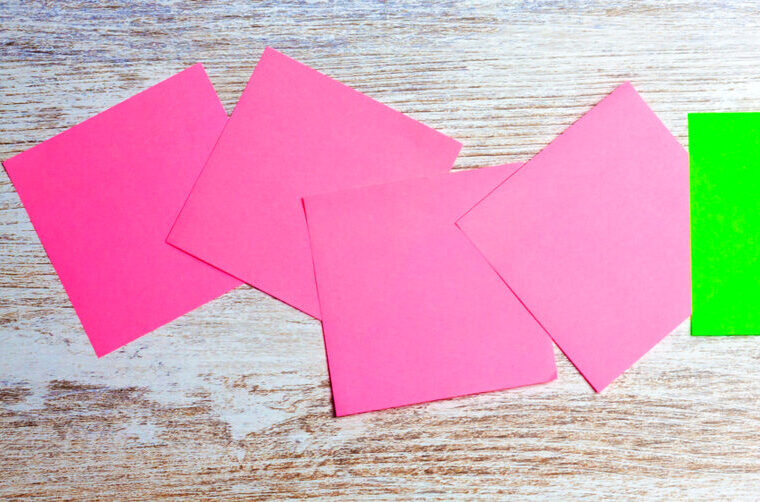
Do your students struggle to compose sentences about nonfiction topics that make sense or sound right? Do they lack structure at the sentence and paragraph level? Here’s a few tricks I’ve been trying with small groups of late-early and transitional stage readers.
Generate key words
As part of a conversation generate key words they will use to orally rehearse and then write. I’ve started including a key word for the introductory sentence and the closing sentence as well. The “conversation” aspect of this is important. I position the students as writers with a clear audience. With late-early stage readers and the book Beetles by Edona Eckart, the students and I generated the words many kinds, glow, wings, colorful, interesting. I started the conversation by saying, “If we were going to write about what we learned, how would we start? Then what would we say?” (I don’t say, “Let’s list five words we will use.”) When a student shares a sentence aloud (after I coach or scaffold as needed), then I say, “What’s a key word from that sentence that we can write down to help us remember what we want to write?”
The photo below is from the lesson with the book Beetles. Each of these words would be used in a sentence to compose a response to the prompt What did you learn about beetles in this book?
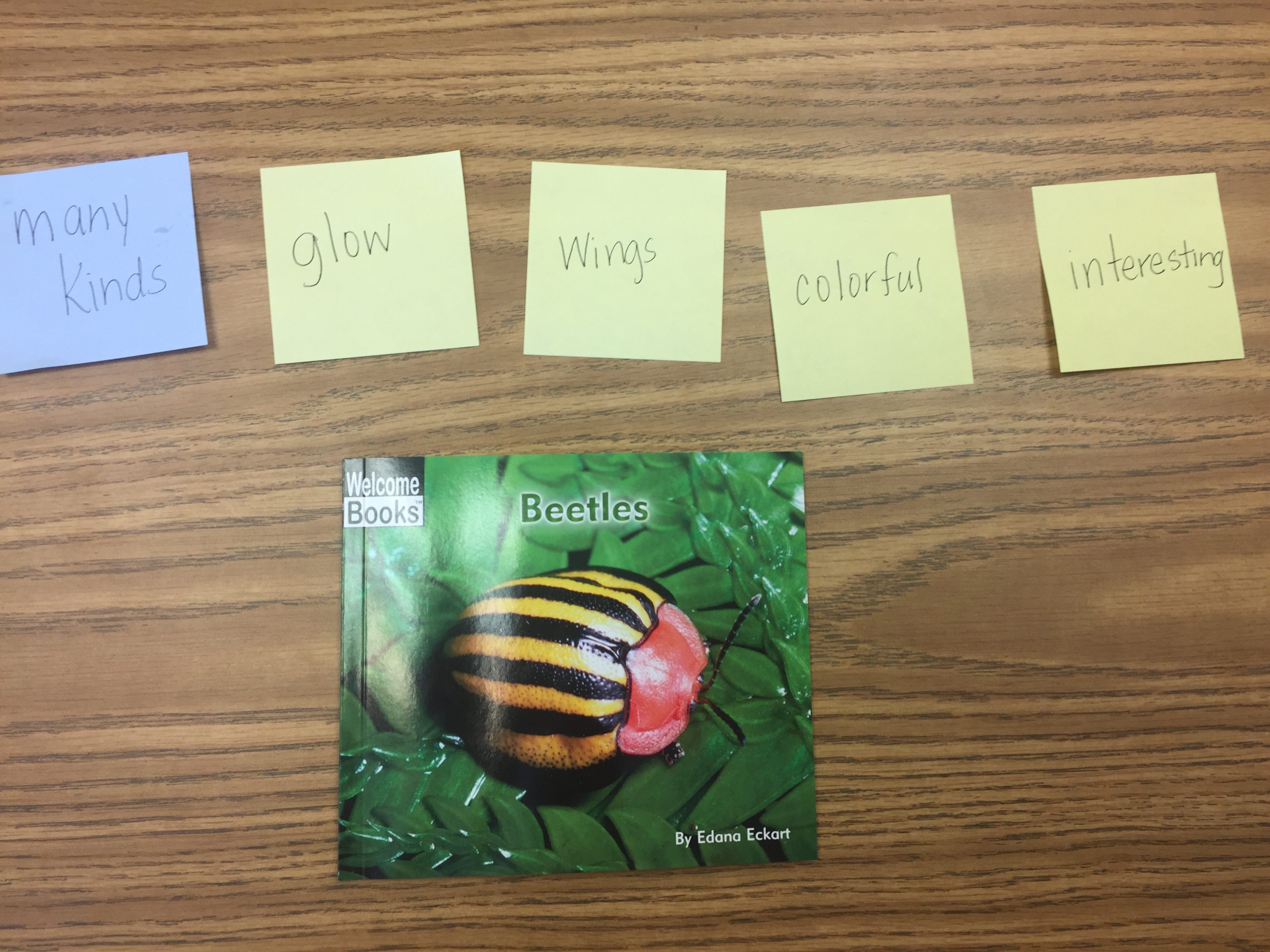
With a transitional stage group reading The Future of Flight by Anna Harris (part of McGraw-Hill’s Wonders), the students had done a close reading of the two pages about the myCopters (small flying vehicles). The prompt for writing was “In a letter, convince someone in your family to buy a myCopter instead of a new car.” Our key words – included believe for an introductory sentence and please for a closing sentence. I started the conversation by saying, “If you are going to convince someone to buy a myCopter instead of a car, what do you want to say first?”
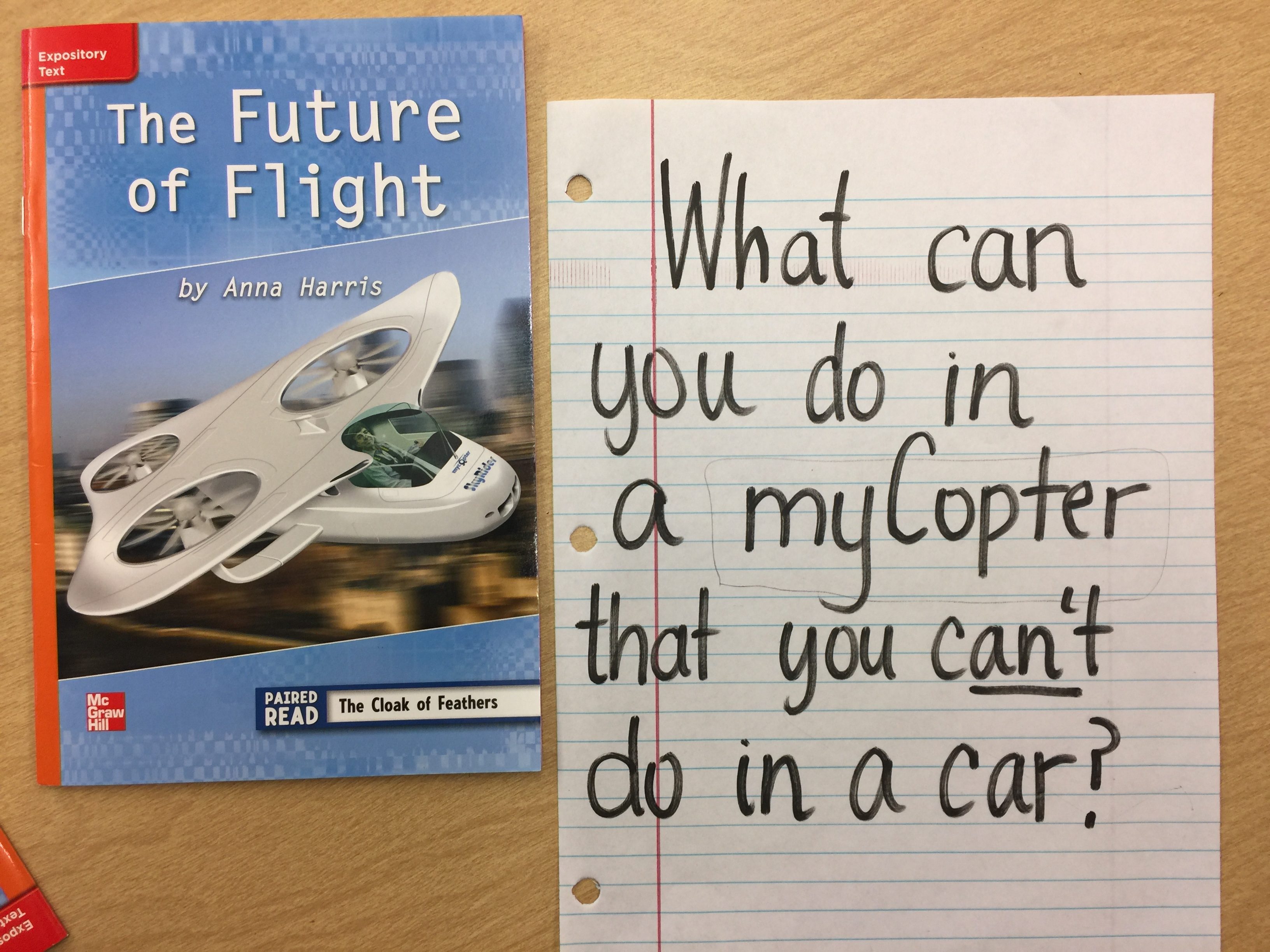
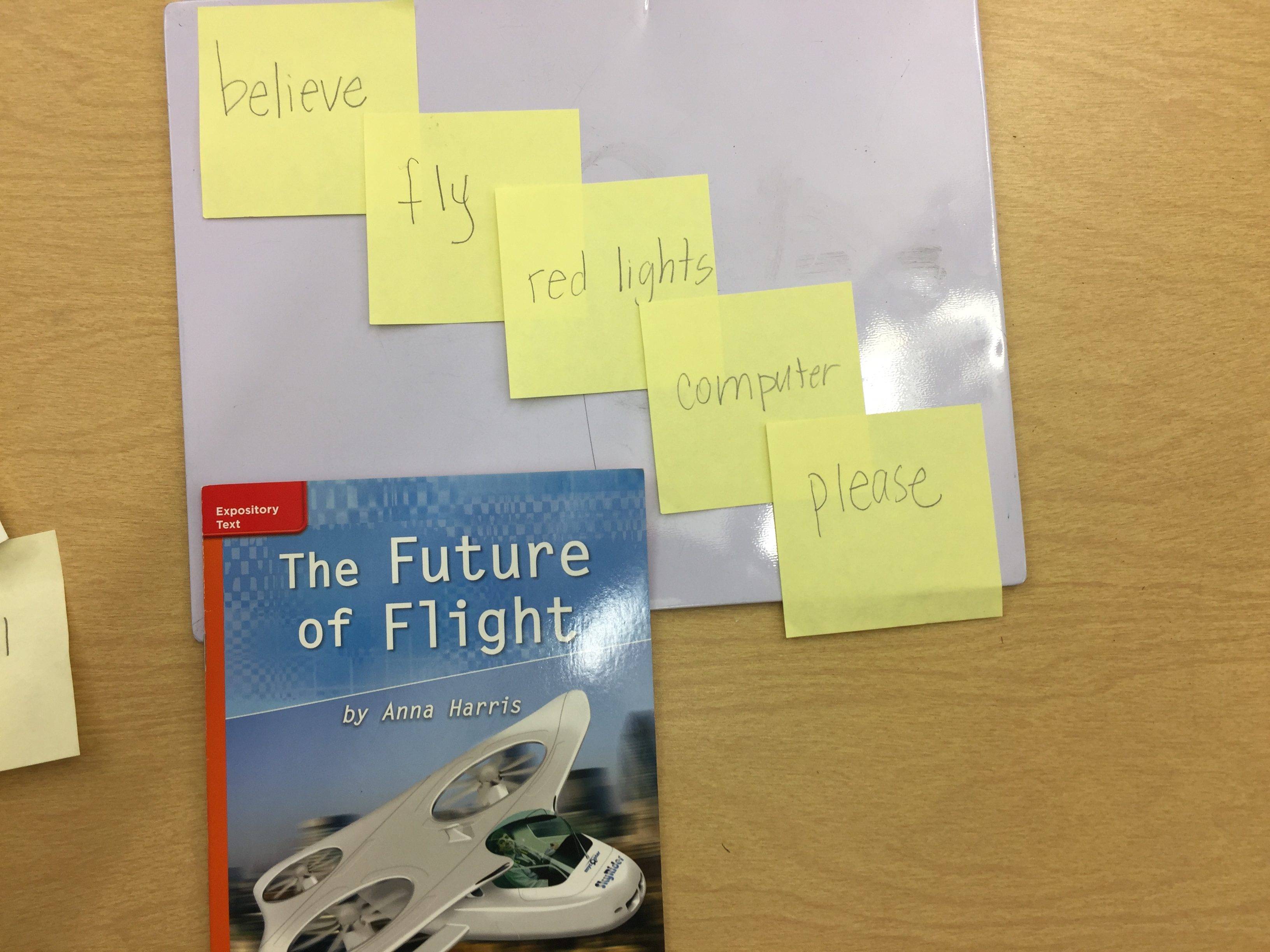
Demonstrate using the key words to orally summarize learning
Then demonstrate for the students how I might use each key word to compose a sentence and draw them into orally rehearsing. In the case of this lesson, I said to the students, “Listen to me as I use these words to help me practice what I will write. I’m going to use the first word…There are many kinds of beetles. Who can compose a sentence with our second key word?”
Provide guided practice orally rehearsing with key words
As students practice using the key words, gently push them to use correct syntax or sentence structure. You might say, “That was tricky. Did that sound right? Let’s think about how we can make that sound right.” Use this approach during writing conferences as well. A student wrote – “The weedy sea dragon has features that help it survive from predators.” I talked with him about how the sea dragon’s features help it avoid or escape predators and then together we revised his sentence aloud until he had the hang of it.
Ask them to practice with a partner. Students can alternate – composing sentences with every other word.
Assess & encourage
Encourage them to elaborate further (aloud) if they are ready. One student reading Beetles wanted to add details in the sentence with the key word “colorful” about the different colors of beetles. I told her “Go for it!” The key words are just triggers for remembering what they learned so if they can compose a more complex sentence or add additional sentences – yes! This also encourages students to make the writing their own and not just copy what other students are saying or writing.
Start writing – with an eye on the key words & more oral rehearsal
With some students, after we rehearse, I ask for a thumbs up when they know what they are going to write for their first sentence. I ask each student to rehearse aloud and then I give them the “go” to start writing. Sometimes they will simply say what the student said before them – that’s okay. The writing becomes more their own the further they get in to it and the more frequently we engage them in doing this kind of guided writing, the risks they will take.
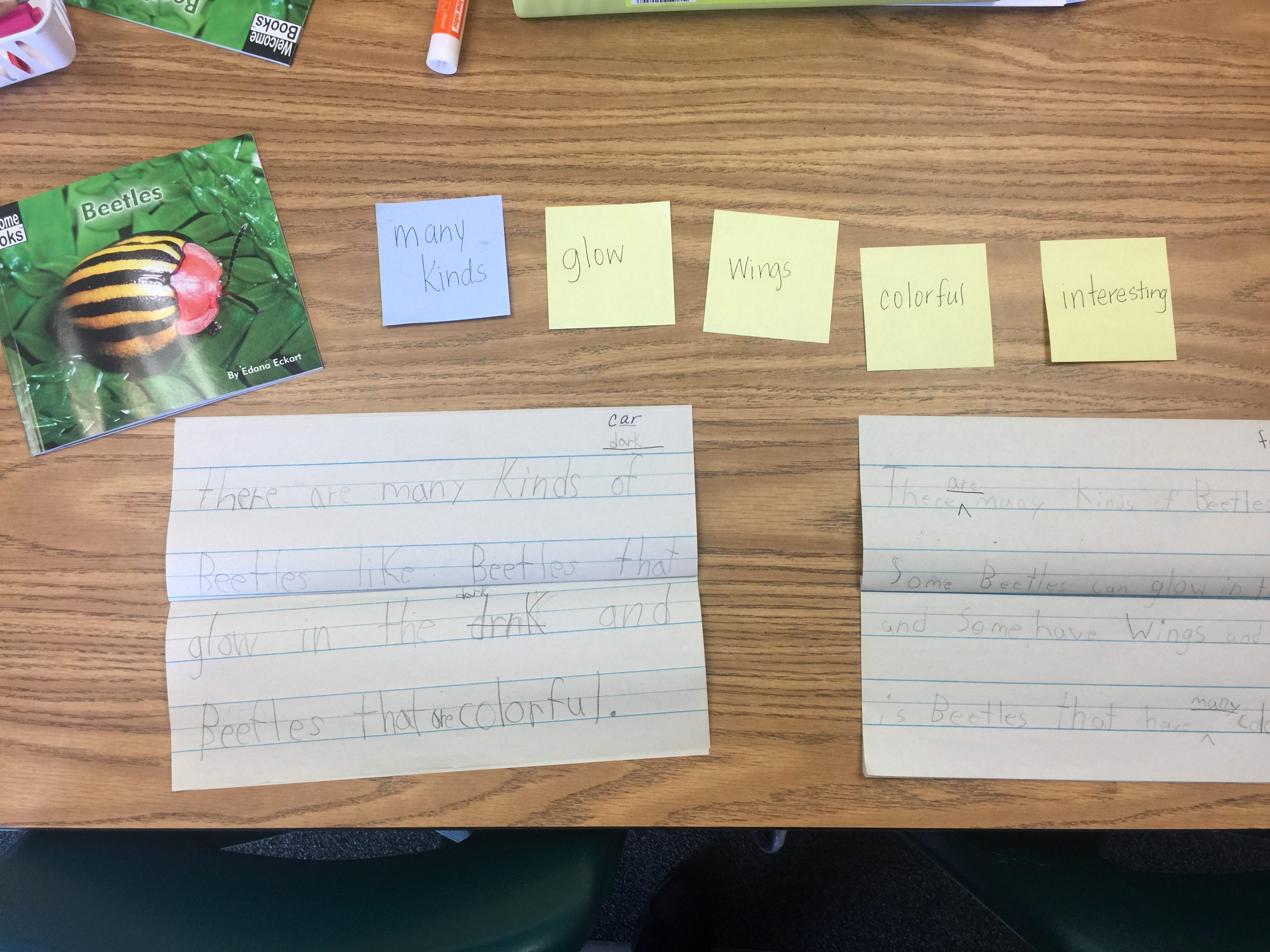
This works best in small groups. The lessons here were done as part of guided writing – which takes place after 1-2 reading lessons (20 minutes each) focused on reading and learning from the book.
If I’m working with a whole class, I use this approach to writing during individual conferences. I ask the student to tell me what they are going to write next. If they need me to, I jot down a few key words on a sticky note–from what they said. Then, if I feel like they need additional kind of support, I say, “How can we put this in a sentence? Let’s try this aloud.”
Hope this helps.
Sunday
UPDATED JANUARY 2025
